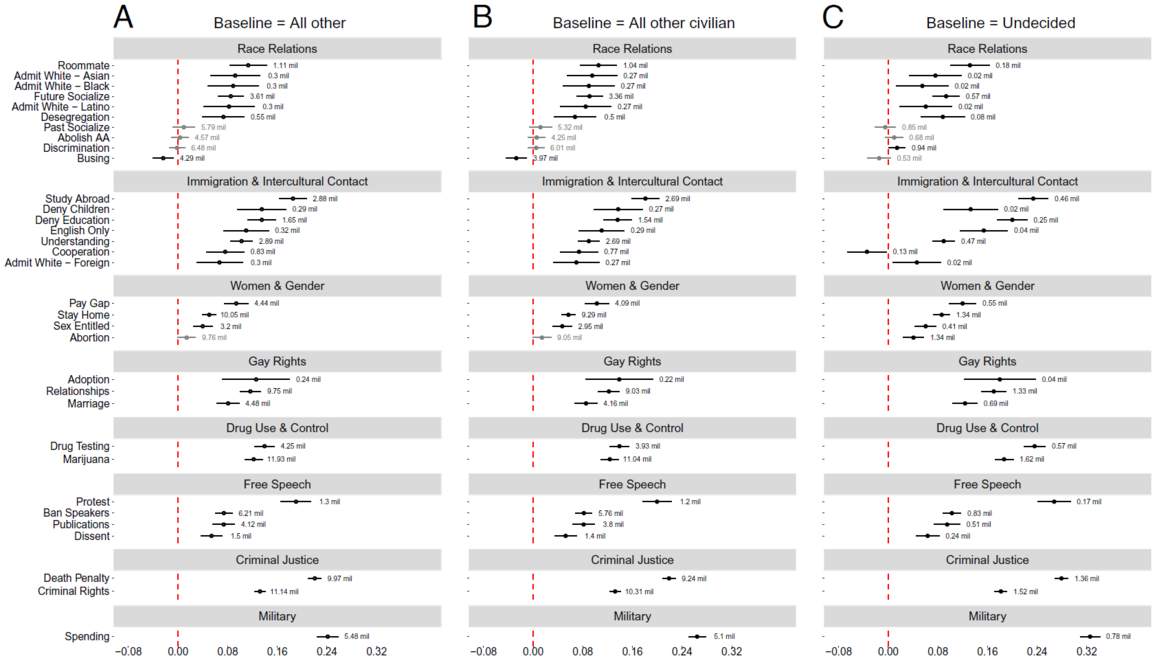Late adolescents entering college intending a career as police officers hold more right-leaning views than their peers
A new article coauthored by Professor Benjamin J. Newman of the UC Riverside Department of Political Science has been published in the Proceedings of the National Academy of Sciences (PNAS), one of the world’s leading scientific journals. The study, titled “Late Adolescents Entering College Intending a Career as Police Officers Hold More Right-Leaning Views than Their Peers,” was coauthored with Tyler T. Reny (Claremont Graduate University), Marcel F. Roman (Harvard University), and David O. Sears (University of California, Los Angeles).
Drawing on survey data from over 13 million late adolescents collected across 44 years, the research examines whether those who plan to pursue a career in law enforcement already differ politically and socially from their peers before entering the police academy. The findings reveal that college-bound students intending to become police officers tend to hold more right-leaning views on topics such as race relations, immigration, gender roles, and criminal justice compared to their peers—particularly when compared to those undecided about their career paths.
Interestingly, these patterns are weaker among non-White respondents and notably reduced among women, suggesting that gender and racial diversity play distinct roles in shaping political orientation among prospective police officers. The study offers an important contribution to ongoing debates about bias and reform in policing, suggesting that differences in attitudes may emerge long before individuals begin formal police training.
As the authors write, addressing bias in law enforcement may require attention to the earliest stages of recruitment and candidate development, including broadening the applicant pool and implementing early bias training.
“Our findings suggest that to reduce bias in policing, reform efforts must begin before the academy,” Newman explains. “We need to understand not just how police are trained, but who chooses to become a police officer in the first place.”
The article is available open access from PNAS:
Reny, Tyler T., Marcel F. Roman, Benjamin J. Newman, and David O. Sears. “Late Adolescents Entering College Intending a Career as Police Officers Hold More Right-Leaning Views than Their Peers.” Proceedings of the National Academy of Sciences 122, no. 32 (2025). https://www.pnas.org/doi/10.1073/pnas.2500220122
